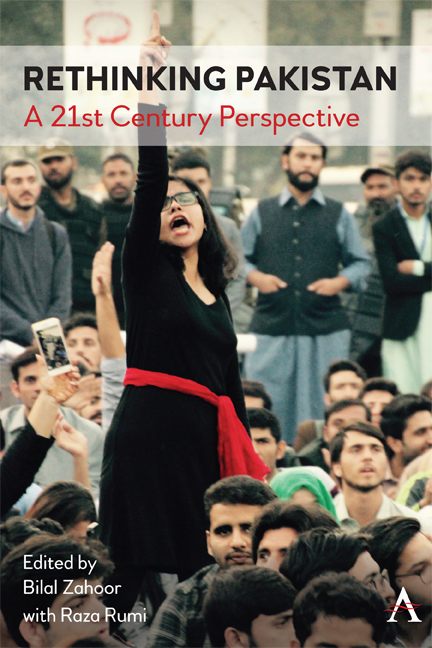Book contents
- Frontmatter
- Dedicated
- Contents
- Acknowledgements
- Introduction
- Part I Identity, Religion and Radicalisation
- Part II Development, Reform and Governance
- Part III Rights, Repression and Resistance
- Part IV Sex, Gender and Emancipation
- Part V Conflict, Diplomacy and Foreign Policy
- Contributors
- Bibliography
- Index
Chapter 4 - Can Pakistan Have a De-radicalised Future?
Published online by Cambridge University Press: 20 January 2022
- Frontmatter
- Dedicated
- Contents
- Acknowledgements
- Introduction
- Part I Identity, Religion and Radicalisation
- Part II Development, Reform and Governance
- Part III Rights, Repression and Resistance
- Part IV Sex, Gender and Emancipation
- Part V Conflict, Diplomacy and Foreign Policy
- Contributors
- Bibliography
- Index
Summary
The reason why extremism needs to be seriously discussed and debated in Pakistan is not because we have had thousands of deaths related to terrorism but because, over this period spanning decades, both the state and the society failed to provide an adequate response to check terrorism. Why did the incidences of civilian deaths and targeted killings of doctors fail to shake the society out of its indifference even before 9/11? Why was the cold-blooded murder of Governor Salman Taseer by his own security guard justified by large sections of the society? Why could not the society capitalise on the initial public abhorrence to the shooting of a 14-year-old Malala in 2012? Finally, why did it take the Peshawar massacre of more than a hundred schoolchildren in 2014 to form a concrete public opinion against terrorism in the name of Islam? Even after the formation of this opinion, we continue to walk a slippery slope as demonstrated by the brutal murder of Mashal Khan in 2017.
Islam has been used as the predominant justification for terrorist acts in Pakistan; one can term these acts as an outcome of violent religious extremism. The real failure, then, is that the Pakistani society has not been able to stand against the forces of violent extremism, and this chapter contends that this failure can be explained by the prevalent religious extremism within the social fabric of the society. Thus, the subject of this chapter is not the few violent extremists who perpetrate acts of violence but the majority that accepts, sympathises with or justifies these acts.
What Is Radicalisation?
Mandel's idea of radicalisation, as an increase in and reinforcement of extremism in the thinking, sentiment and behaviour of an individual or group of individuals, is a good starting point for a definition. However, extremism as a term indicates an extreme position in contrast to a moderate one, and the process of radicalisation is a movement from this moderate position towards the extreme one. Thus, to define what is extreme, one has to know what is moderate in our context of a conservative and religious society. More importantly, because we are assessing religious extremism, understanding the role of religion becomes important.
- Type
- Chapter
- Information
- Rethinking PakistanA 21st Century Perspective, pp. 51 - 58Publisher: Anthem PressPrint publication year: 2020



